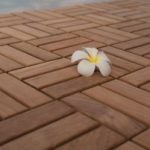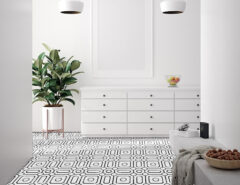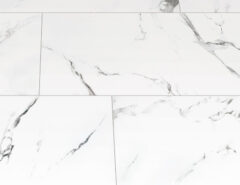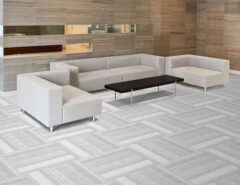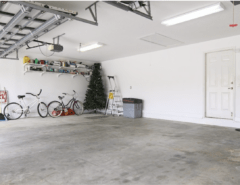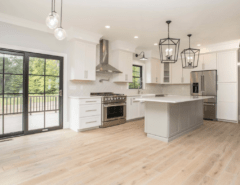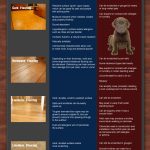Undoubtedly, one of the major reasons you or the original homeowner selected hardwood floors for your home is because of its longevity. With proper care and maintenance, hardwood floors can be revitalized many times through refinishing. Surface dents, unsightly stain inconsistencies, even deep scratches—they can all be wiped away with the help of a sander. Yet hardwood isn’t immortal. It, too, has an expiration date, albeit a time that may be far from now.

If your hardwood floors are struggling, you’re facing a big decision: to refinish or to replace. Hardwood floor refinishing is often considered the more desirable option. It’s cheaper, less laborious, and just as rife with aesthetic potential. It’s also a preferred option for homeowners looking to maintain historic value and original finishes.
It’s the price factor of refinishing that entices most homeowners, considering that a brand new floor could run you $4,000 more than refinishing. Yet refinishing isn’t always an option, so you need to consider various choices.
When It’s Time to Replace or Refinish Hardwood
How do you know if it’s time to say adios to your old floors and hello to something brand-new? Every scenario is different, but the following are some of the common ones we often run into when helping our customers select the right floors.
- If the Floor is Water-Damaged: Replace — Water is the enemy of solid wood, which is why engineered wood flooring with a water-resistant core has gained such momentum. Refinishing will not be able to fix any permanent water damage, such as expansion and rotting. This may mean replacement in some rooms, such as the kitchen, basement, or bathroom, and refinishing in others. If you intend to install new floors in rooms where water is a concern, make sure to consider engineered hardwood flooring.
- If the Floor Has Structural Issues: Replace — Permanent structural issues may be caused by water damage, accidents, fires, or simply poor maintenance over the years. If the floor is splitting, cracking, bubbling, or loose in some spots, you’re probably looking at a replacement rather than a refinish. Any time hardwood has shifted significantly, professionals recommend a replacement. If your floors have fed a family of termites, you know what to do.
- If the Floor Has Been Refinished Too Many Times: Replace — As we mentioned above, hardwood is long-lasting, but it doesn’t last forever. Some floors have been sanded down one too many times, leaving them too thin or fragile to refinish again. Additionally, know that a previous owner might have stained the thin solid wood subfloor or plywood, which then wouldn’t be able to handle a complete sanding job. Only refinish floors you know are genuine, solid hardwood.
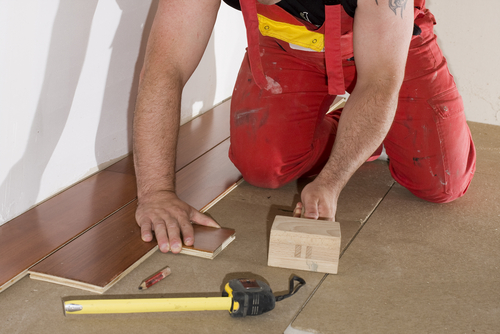
- If You No Longer Prefer the Species: Replace — Back in the day, homes were pretty much exclusively built with oak hardwood floors. While this is still a very popular and often recommended option, some homeowners prefer the aesthetic of a more exotic or unique look. Just make sure you don’t replace solely due to the wood’s color, as this can usually be corrected with stain.
- If You No Longer Like the Finish: Refinish — Hardwood floor trends ebb and flow with design trends at large. Consumers have embraced the cool-toned wood floors, as of late—especially gray hardwood floors—and they are moving away from blonde and light-colored woods. If you simply want to refresh your home and make it look more up-to-date, go the refinishing route. A fresh coat of finish and polish will make your floors look like new without the headache of a whole do-over.
- If Your Floors Have Surface Issues: Refinish — Note that many surface issues can be sanded out of hardwood floors, such as surface scratches, stains, and finish inconsistencies. If your floors are thick enough, you can even sand them down and get rid of any particularly unsightly deep nicks and scratches. Depending on the situation, this may not require a whole-floor hardwood refinishing, and you may be able to sand down and refinish only the affected area.
Making the Right Decision for Your Home
Floors are vital structural components in your home, providing stability and style in every room. It’s important that you consult with a contractor or a flooring installer if you’re still on the fence or have special considerations. BuildDirect is here to help you with hardwood floor refinishing and replacement, so don’t hesitate to contact us if you have any specific questions.


